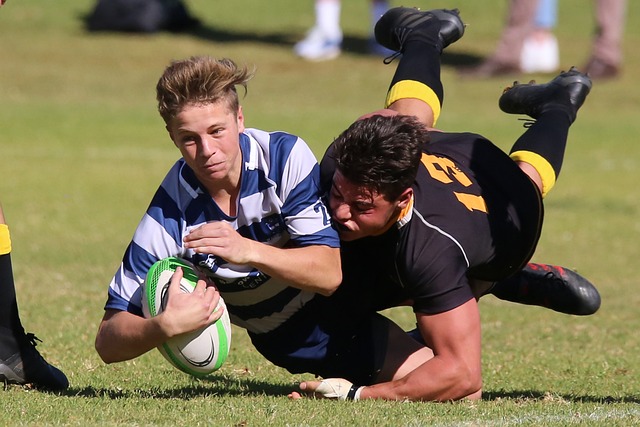
Revitalizing Schools’ Rugby: The RFU’s Bold Plan for Growth and Inclusion
The Rugby Football Union (RFU) has unveiled a forward-thinking strategy to boost the future of schools’ rugby in England, following a comprehensive independent review led by Sir Jon Coles, CEO of United Learning. This review, commissioned by the RFU, involved extensive consultations across schools with both deep rugby traditions and those new to the sport, with an emphasis on inclusivity and expanding the game’s reach.
Challenges and Opportunities in Schools’ Rugby
The review highlighted a decline in rugby participation among schools with a long history of the sport, largely due to concerns over player safety and the perceived difficulty in introducing rugby to new students. However, despite these challenges, the review also found that rugby maintains a strong presence in schools across the country. A prime example of this continued interest is the success of the Continental Tyres Schools Cup, which saw 664 schools participating in the 2024 season, showcasing the sport’s enduring strength across both state and private schools.
Notably, rugby is being introduced to new audiences through initiatives like Touch To Twickenham, which brought nearly 3,000 young players from 250 schools and colleges into the fold. Impressively, 60% of these participants were playing rugby for the first time, and almost half were female—a testament to the growing appeal of the sport across genders.
Untapped Potential for Growth
The review also identified a significant opportunity for expansion, particularly among schools without a rugby tradition, as well as in communities where the sport has historically had little presence. There is immense potential in increasing participation among girls, where the growth seen in women’s rugby at the professional level has yet to be fully mirrored in schools.
Recognizing these opportunities, the RFU is poised to broaden the sport’s reach, especially in underserved areas and demographics. This initiative is further buoyed by the introduction of T1 Rugby, a non-contact version of the game designed to retain key elements of traditional rugby, such as lineouts, scrums, and kicking. The RFU aims to have 5,000 schools playing T1 Rugby within the next four years, making rugby more accessible to a wider range of students.
Supporting Schools and Educators
To facilitate this expansion, the RFU is providing schools with T1 Rugby ‘flatpacks,’ which include all the necessary equipment and resources for educators. These resources feature six-week lesson plans and tailored support for teachers, developed in consultation with educational professionals. This approach ensures that introducing rugby to a school’s curriculum is as seamless as possible.
Additionally, the RFU is investing heavily in building a national network of 100 school rugby managers by 2027, with 40 already in place. These managers work closely with local schools to embed rugby within their physical activity offerings and establish connections with local rugby clubs, further strengthening the sport’s foundation at the grassroots level.
Addressing Leadership and Safety Concerns
One key finding of the review was the impact of leadership changes within schools on rugby participation. To address this, the RFU is enhancing its partnerships with school leaders to ensure continuity and support in maintaining rugby as part of the schools’ sporting programs.
Regarding safety, the RFU has proposed codifying three formats of rugby with clear competitive structures to help schools manage risk more effectively. This includes a framework for full-contact rugby for students aged 15 and above, with the review’s findings indicating that injury risk in younger age groups is not significantly higher than in other sports. These measures are designed to reassure schools and encourage them to keep rugby on the curriculum for all pupils.
A Moment for Change
Sir Jon Coles, who led the review, emphasized the critical nature of this moment:
“This is a moment for change. The RFU must now take bold steps to make sure that schools with a strong rugby tradition want to play rugby and other schools want to join in.”
He highlighted the unique appeal of rugby, a game played by individuals of all backgrounds, body types, and abilities, and the potential for it to impact students positively both on and off the pitch.
A Bright Future for Schools’ Rugby
The RFU’s Executive Director of Rugby Development, Steve Grainger, echoed these sentiments, expressing optimism about the future:
“We are committed to developing more and better resources and training for schools across the country which will be key in engaging young people and helping them to access our great game.”
With a clear roadmap laid out by the RFU and the support of schools and communities, the future of rugby in England’s schools looks promising. As rugby continues to grow and evolve, its enduring qualities as a team sport are poised to inspire a new generation of players from all walks of life.
Read the full report by clicking here.
Image by Patrick Case from Pixabay




The problem is the amount of time PE teachers can give especially going off site to visit other schools this needs to be addressed first
I agree that we need to focus on the non rugby playing schools. However, links with local rugby clubs must be front and centre if there is to be any retention of players after leaving school. We have to build a new generation of players that will remain in the sport, schools are only a part of the solution.
Absolutley agree with you David. Clubs should be trying to be part of the delivery of this!